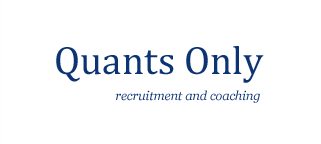Succesful interview
by Appleby Associates.
Presentation and preparation form the bedrock of a successful interview. A formal application or a networking approach has already convinced a potential employer that you merit serious consideration and their full attention.
To maintain this momentum at interview and further shorten the odds in your favour, it’s vital that you are primed to establish yourself as the solution to their problem. Make it easy for the employer to mark you down as the best fit with the least risk.
Your overall presentation and how you project yourself will be scrutinised. From the initial firm handshake to the conclusion of interview, it is important to embody the perfect fit for the role you pursue and for the wider company you wish to join.
Maintain a conversational style and envisage that you are having a business meeting with a senior colleague with whom you have a shared ambition for the future success of your organisation. You must assume that you are already on the team, as this will help your interviewer to see you in such a way. Establishing personal chemistry at interview is a powerful tool in convincing an interviewer that you belong – remember that the organisation is seeking to present itself as an attractive employer to you, also.
A lack of research simply demonstrates a lack of respect for the potential employer and your career. This basic requirement of drawing on market intelligence must be augmented by a stock of thoughtful and appropriate questions, allied to some original thinking to whet the appetite – leave them wanting more.
Possessing sector insight and technical knowledge will advance credibility within an interview but these assets alone will inevitably be matched by competing candidates. The ability to empathise with the culture and values of an organisation and to be in step with its stated future vision will reassure the company that you present as a genuine candidate with long-term potential. Take time to investigate your target company’s values and, if possible, ask questions of current or recent employees.
Plan how you will introduce your transferable skills (underpinned by tangible evidence) in relation to the opportunity under discussion. Highlight career achievements that demonstrate both relevant qualifications for the new post, as set out in the job description and competencies, but also a breadth of experience that reveals more of you as person and how you might add real value to the role.
Your preparation may have identified some areas that concern you, for example gaps in your CV or a number of roles undertaken within a relatively short period. These potential ‘risk questions’ need to be dealt with confidently but swiftly, gently directing the interviewer to your stronger areas and the reasons why you provide an excellent fit for this role.
Be ready to turn negatives into positives, for example, by illustrating how a weakness recognised earlier in your career was addressed. If requested to list some failures or mistakes, ensure you offer proper examples but present them as historical experiences which have been useful but not repeated in your professional development.
Even if the interview does not go to plan, maintain a calm professionalism and maximise the time to gain experience and to learn – this specific role may be out of reach, but the employer, or the access they provide to a valuable new network, might offer a more suitable role in the near future.
This brief article was provided by executive career consultants, Appleby Associates.
